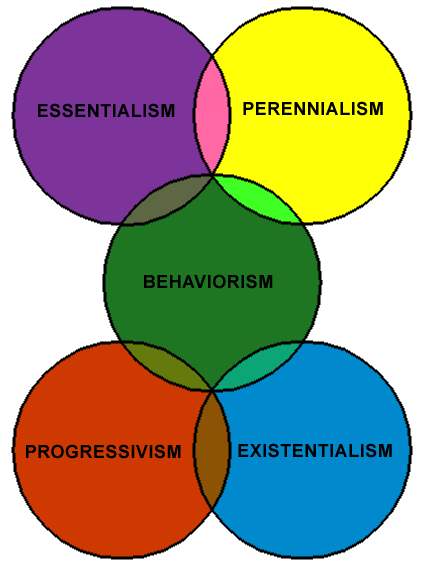| ESE502: The Class: Self Assessments: Philosophy Overview | |||||
Overview of Educational Philosophies
Click on the links provided to learn more about the each one.Click on each of the circles below to learn about the educational philosphies: Essentialism, Perennialism, Behaviorism, Progessivism, and Existentialism.
|
|
Each of these ways of viewing education was prominent at one time. Most
education is a blend of these influences, and how we are expected to
manage a class is directly related to the belief system we have or
that we share with the community about the purpose of education.
How we discipline children flows from what we feel our purpose is in the classroom. Like a roadmap, it gives structure to how and what we teach. It helps define the role of student and the expectations we have for the teaching role. Our definition or understanding of the teaching and student roles define when we believe children need to be corrected and our way of responding to students to let them know what is expected, what we will tolerate and what we reward.
|
Go on to Web Assignment 1: Search the Web: Educational Philosophies
or
Go back to Self Assessments
E-mail J'Anne Ellsworth at Janne.Ellsworth@nau.edu
Copyright 1998
Northern Arizona University
ALL RIGHTS RESERVED

